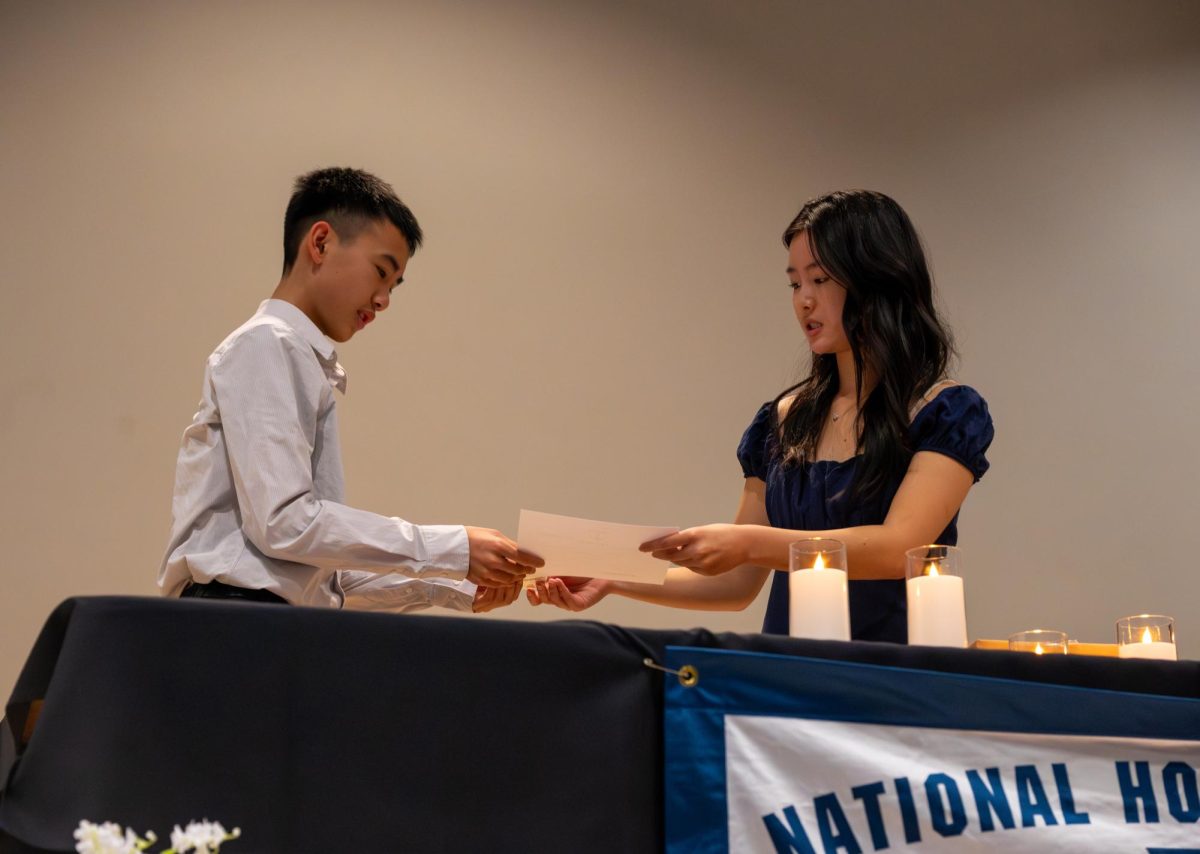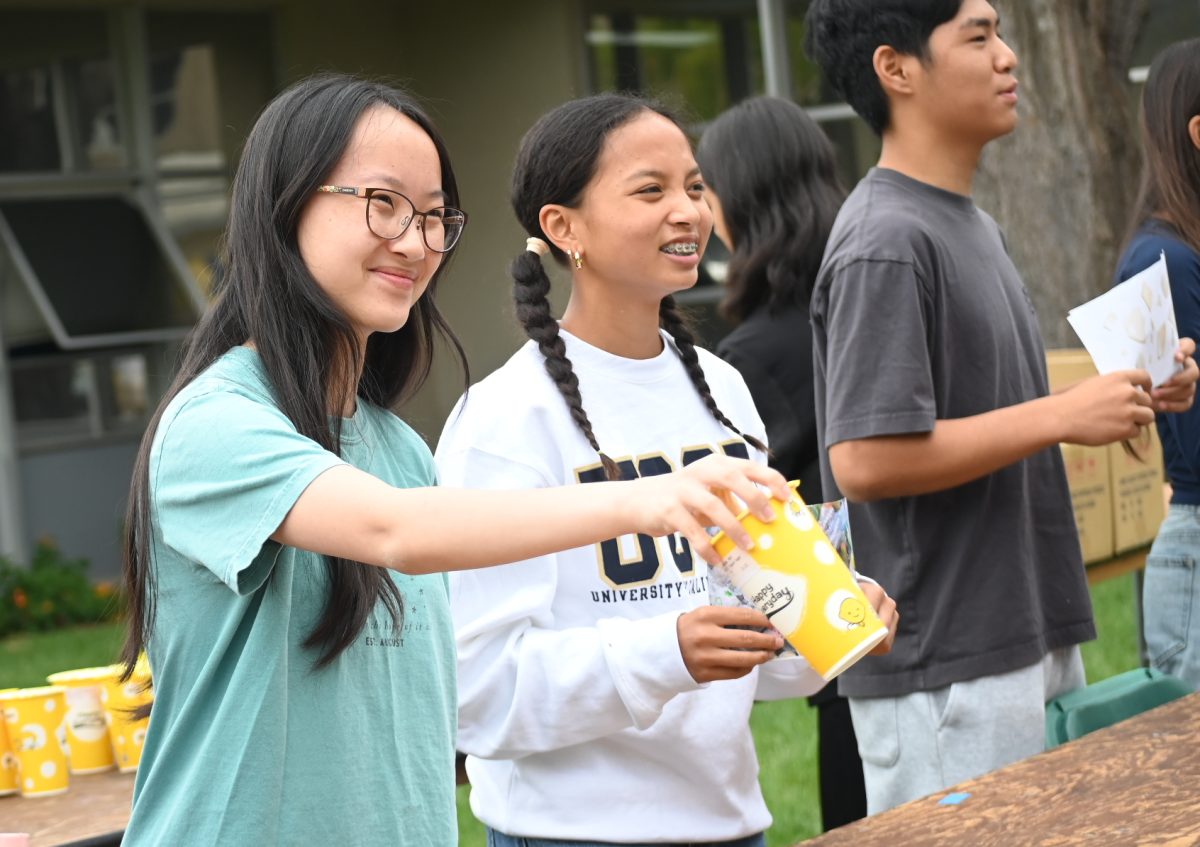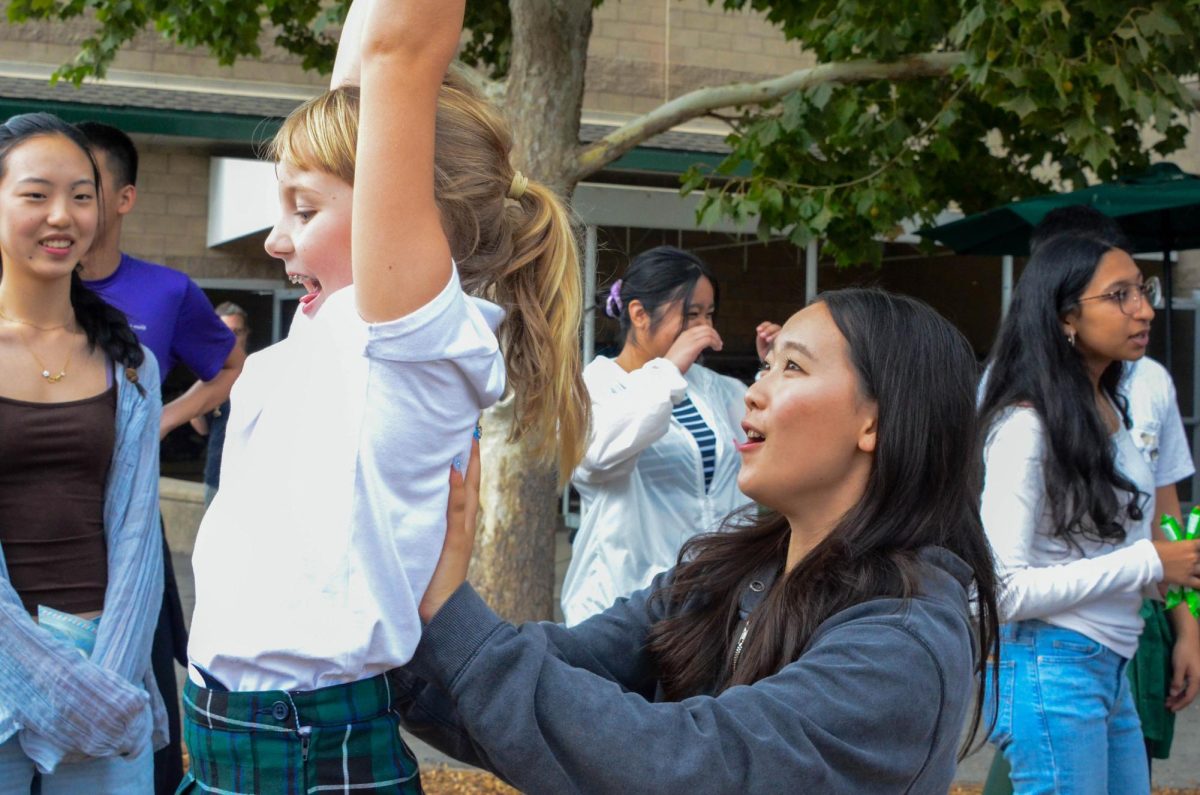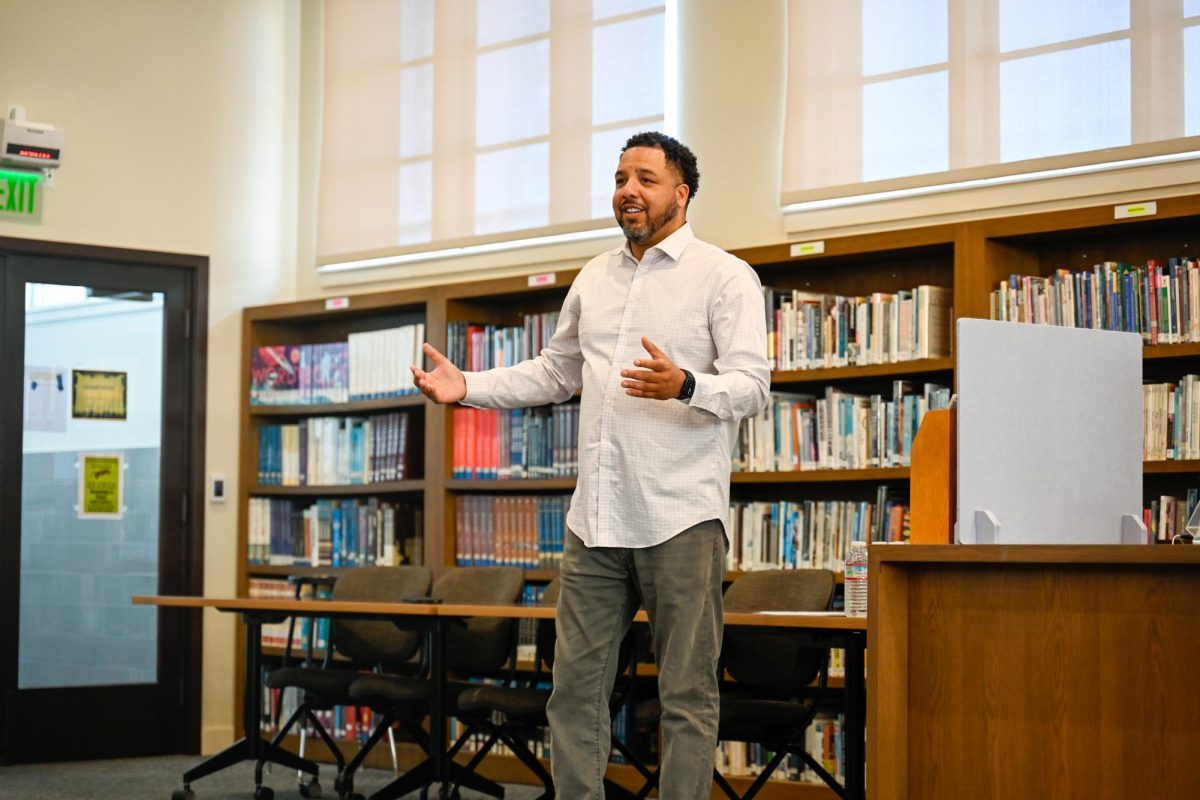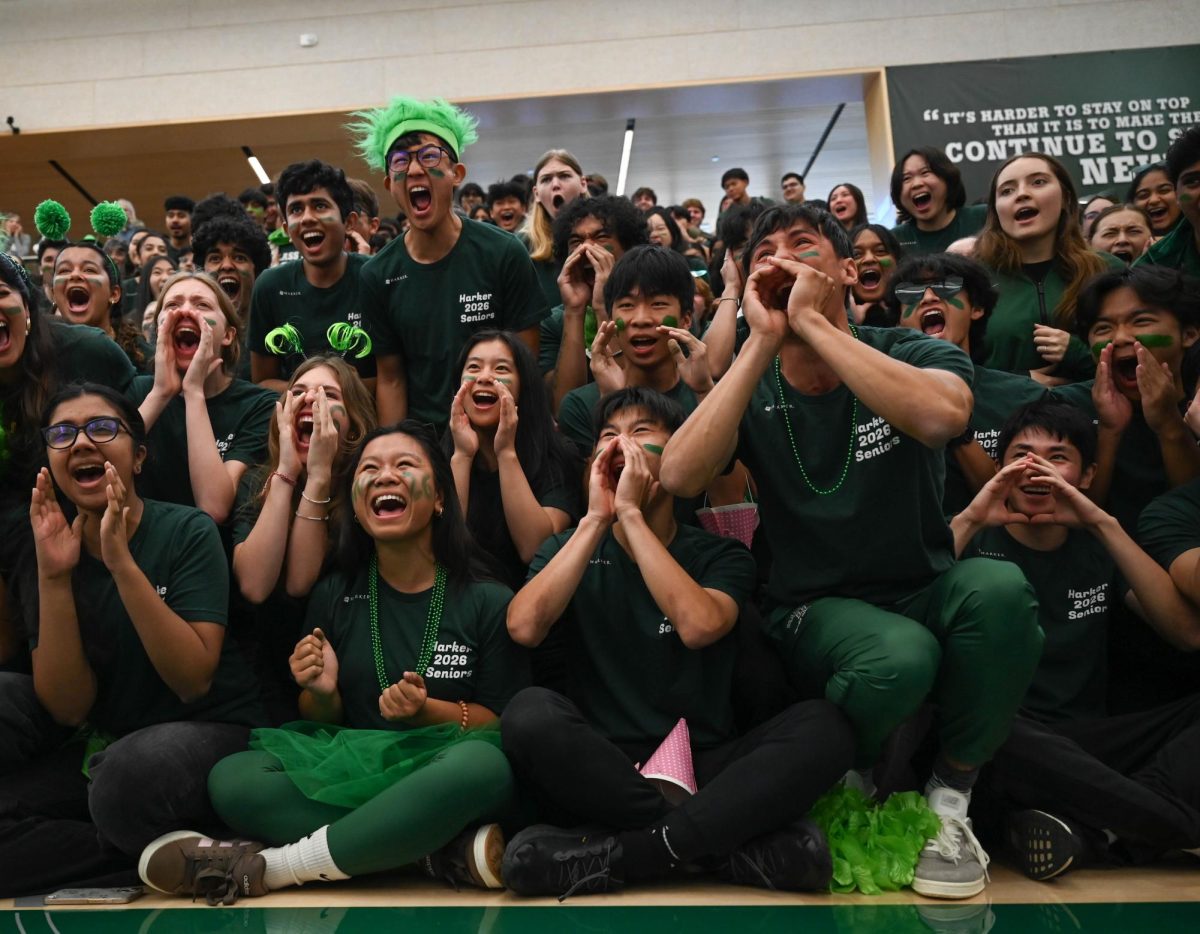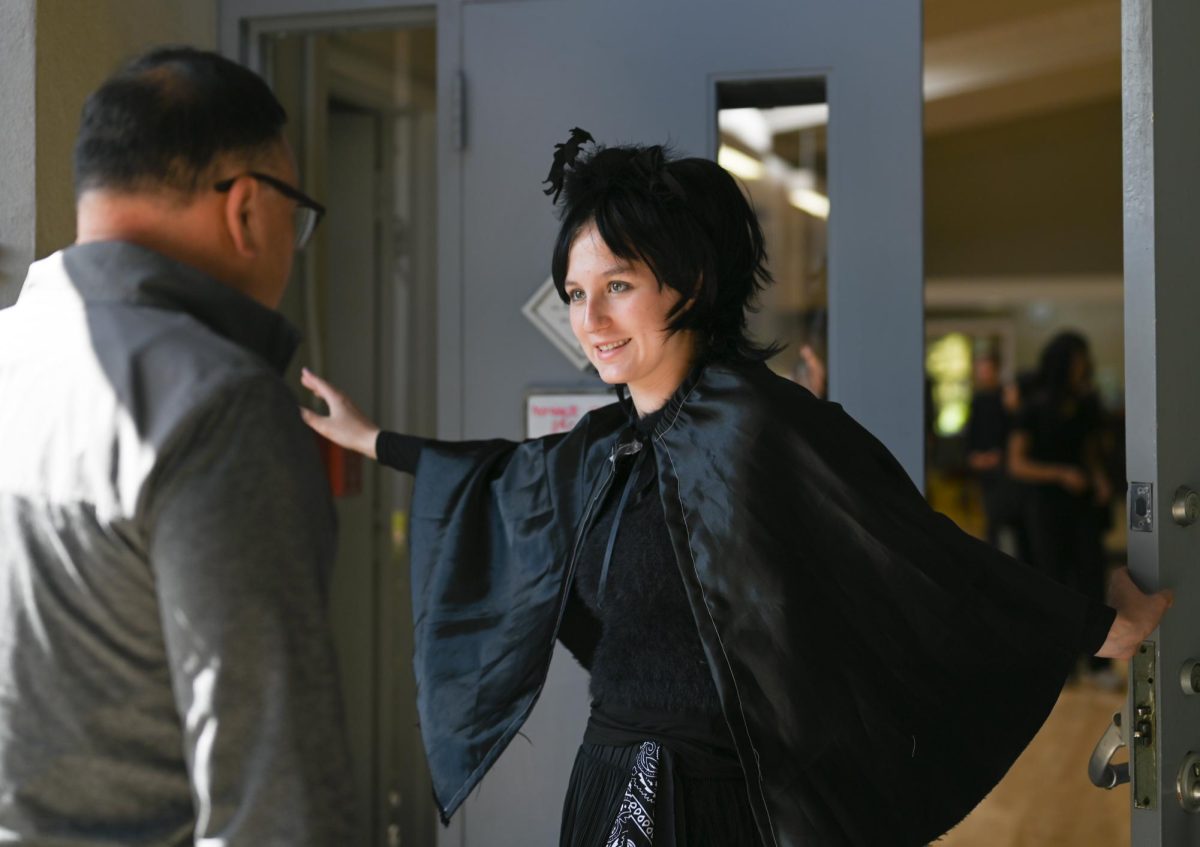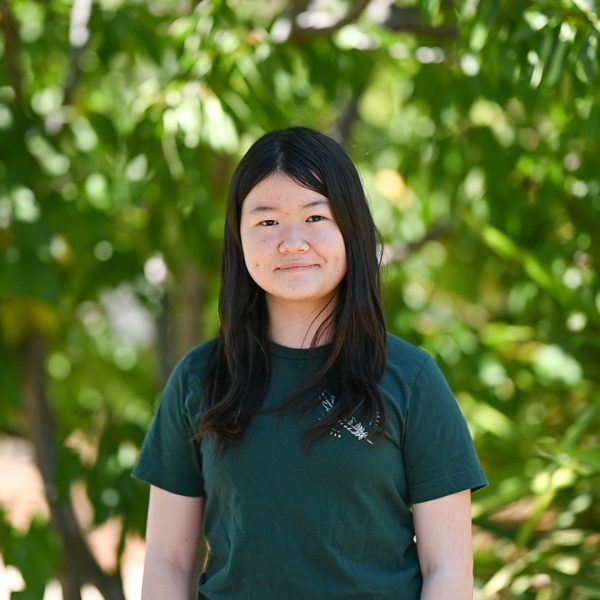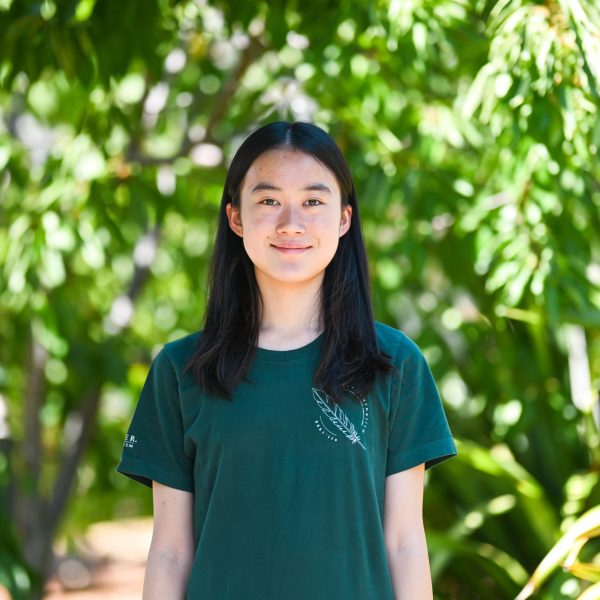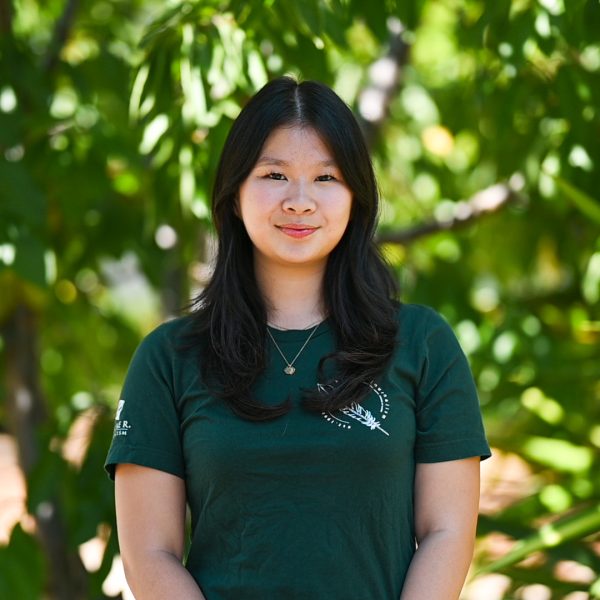Foreign correspondent and author Atia Abawi spoke about her journalism career to one period of the Newspaper classes on Nov. 7 in the journalism room.
Abawi started reporting after graduating from college and later joined CNN’s Media Operations department. Her Afghanistan background made her CNN’s primary source for news from the region, and she eventually became their Afghanistan correspondent. On her path to this position, however, she faced discrimination from both her bosses and colleagues.
“I consider myself a trusting person and I didn’t realize there was a lot of backstabbing going on behind me,” Abawi said. “As a young journalist, there’s a lot of ageism, and as a woman, there is a lot of sexism. Sometimes people call you naive as a journalist because you want to make a difference.”
Abawi showed students a video of her work, including when she covered the 2012 Afghanistan Quran burning protests. She explained how she chose to cover warzone events despite the increased targeting of journalists during conflicts, sharing that she even once gave an envelope to her best friend just in case she died.
Harker Aquila STEM Editor Jonathan Szeto commended Abawi’s bravery in covering these kinds of news stories.
“It’s really interesting to see how she went about interviewing people and covering live events and when she was put in places where normal journalists wouldn’t go because of how dangerous it was,” Jonathan said. “It was nice to hear how she overcame difficulties in the workplace, especially sexism and other forms of discrimination.”
While Abawi has spoken to many high-profile individuals, her interviews with ordinary civilians during war times have impacted her the most, noting how people do not know the impact of war until they see it themselves.
Harker Aquila Assistant News Editor Chelsea Xie (10) expressed admiration for Abawi’s dedication to providing true facts in a high pressure environment.
“The story she told that most impacted me was her work on the ground, seeing children and families suffering, and being able to accurately report that,” Chelsea said. “Instead of just treating them as numbers, she aimed to report people as true humans.”
Abawi remains dedicated to presenting multiple perspectives but mentioned how the inherent bias in many news outlets reveals only part of the picture, specifically in the current Israel-Palestine conflict.
“Even if they look different than us or they practice a different religion than us, we have much more things that unite us,” Abawi said. “When we try to keep dividing, we create a much more dangerous world for all of us because in the end, what impacts them there will impact us here.”
To close off her presentation, Abawi encouraged students to consider people on both sides of the story, no matter the event.
“I go back to humanity,” Abawi said. “We see a lot of things on social media, we see things on mainstream media, but we forget that there are real people involved.”


















![“[Building nerf blasters] became this outlet of creativity for me that hasn't been matched by anything else. The process [of] making a build complete to your desire is such a painstakingly difficult process, but I've had to learn from [the skills needed from] soldering to proper painting. There's so many different options for everything, if you think about it, it exists. The best part is [that] if it doesn't exist, you can build it yourself," Ishaan Parate said.](https://harkeraquila.com/wp-content/uploads/2022/08/DSC_8149-900x604.jpg)




![“When I came into high school, I was ready to be a follower. But DECA was a game changer for me. It helped me overcome my fear of public speaking, and it's played such a major role in who I've become today. To be able to successfully lead a chapter of 150 students, an officer team and be one of the upperclassmen I once really admired is something I'm [really] proud of,” Anvitha Tummala ('21) said.](https://harkeraquila.com/wp-content/uploads/2021/07/Screen-Shot-2021-07-25-at-9.50.05-AM-900x594.png)







![“I think getting up in the morning and having a sense of purpose [is exciting]. I think without a certain amount of drive, life is kind of obsolete and mundane, and I think having that every single day is what makes each day unique and kind of makes life exciting,” Neymika Jain (12) said.](https://harkeraquila.com/wp-content/uploads/2017/06/Screen-Shot-2017-06-03-at-4.54.16-PM.png)








![“My slogan is ‘slow feet, don’t eat, and I’m hungry.’ You need to run fast to get where you are–you aren't going to get those championships if you aren't fast,” Angel Cervantes (12) said. “I want to do well in school on my tests and in track and win championships for my team. I live by that, [and] I can do that anywhere: in the classroom or on the field.”](https://harkeraquila.com/wp-content/uploads/2018/06/DSC5146-900x601.jpg)
![“[Volleyball has] taught me how to fall correctly, and another thing it taught is that you don’t have to be the best at something to be good at it. If you just hit the ball in a smart way, then it still scores points and you’re good at it. You could be a background player and still make a much bigger impact on the team than you would think,” Anya Gert (’20) said.](https://harkeraquila.com/wp-content/uploads/2020/06/AnnaGert_JinTuan_HoHPhotoEdited-600x900.jpeg)

![“I'm not nearly there yet, but [my confidence has] definitely been getting better since I was pretty shy and timid coming into Harker my freshman year. I know that there's a lot of people that are really confident in what they do, and I really admire them. Everyone's so driven and that has really pushed me to kind of try to find my own place in high school and be more confident,” Alyssa Huang (’20) said.](https://harkeraquila.com/wp-content/uploads/2020/06/AlyssaHuang_EmilyChen_HoHPhoto-900x749.jpeg)



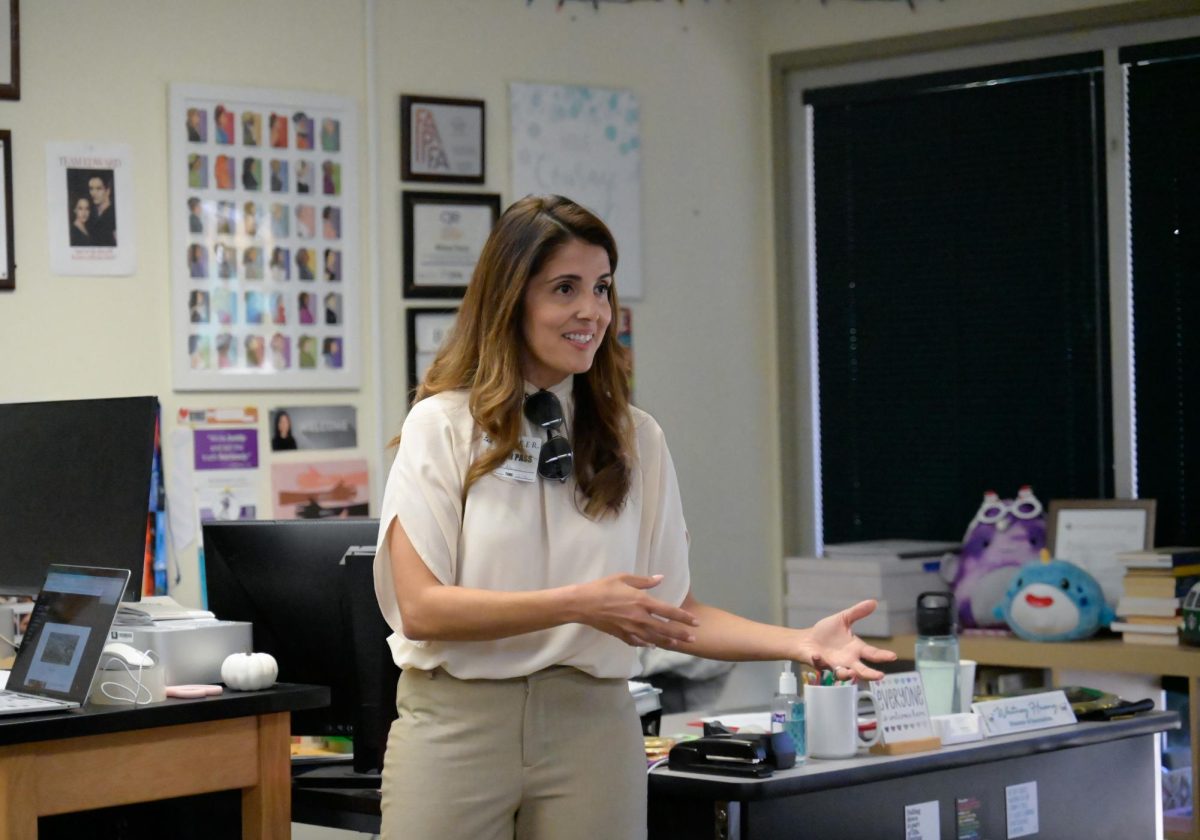
![LALC Vice President of External Affairs Raeanne Li (11) explains the International Phonetic Alphabet to attendees. "We decided to have more fun topics this year instead of just talking about the same things every year so our older members can also [enjoy],” Raeanne said.](https://harkeraquila.com/wp-content/uploads/2025/10/DSC_4627-1200x795.jpg)

